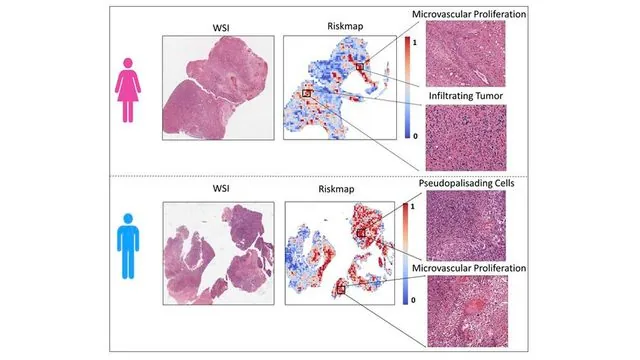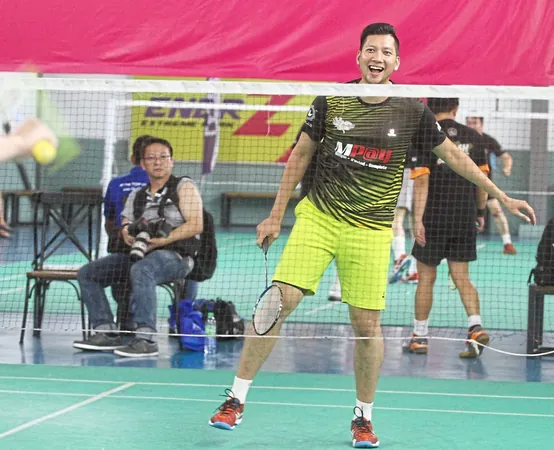
The Hidden Struggle: How Young Mothers and Teens Are Turning to Self-Harm to Cope with Emotional Pain
2024-10-09
Author: Daniel
The Hidden Struggle: How Young Mothers and Teens Are Turning to Self-Harm to Cope with Emotional Pain
In a heart-wrenching tale of despair and resilience, a third-year university student from Hanoi faced a dramatic turning point when the pressures of motherhood forced her to abandon her studies. With sleep reduced to a mere three to four hours a night, she sank into an emotional abyss, feeling detached from her newborn. The dreams of nurturing her child were overshadowed by an overwhelming sense of inadequacy.
“I felt like being a ‘perfect’ mother was my only worth,” she confessed to Dr. Tran Thi Hong Thu, deputy director of the Mai Huong Daytime Psychiatric Hospital. The anxiety of motherhood quickly spiraled when her baby faced health challenges, leading to deep self-loathing and an inability to care adequately for her child.
The tipping point came during a harrowing visit to her in-laws, where harsh critiques about her parenting and cooking led her to a dark path of self-harm. Confronted with the reality of constant criticism, she resorted to crying out in pain, scratching, hitting, and ultimately harming herself as a misguided attempt to cope with her emotional turmoil.
Over in another poignant case, 14-year-old Phuong Nhi found her mother’s oblivion shattering as scars surfaced on Nhi's arms, revealing the dark truth of her internal struggles. Her descent into self-harm began as a desperate response to unyielding academic pressure and self-expectation. “I regret not treating my daughter better,” her mother lamented, blinded by her own demands on Nhi’s education.
Amid an environment that demanded perfection, Nhi’s mental state deteriorated. She described her existence as “incredibly suffocating,” where the only relief lay in using razor blades or burning matches on her skin. The encounter with doctors revealed both she and her mother were battling depression and self-harm disorder, each seeking solace in therapy and medication.
Self-harm disorder—defined by intentionally inflicting physical harm on oneself—emerges as a complex emotional response to anxiety and depression. Dr. Thu notes that young individuals, particularly those unfamiliar with healthy emotional expressions, often lack tools to cope and instead resort to self-inflicted pain as a release.
The ramifications of self-harm extend far beyond the immediate physical damage. Self-harm may not always be a sign of suicidal intent, but its recurrent nature can exacerbate mental health issues and lead to a dangerous cycle of emotional instability. Those afflicted may find themselves increasingly isolated, leading to strained relationships and potential substance abuse as a coping mechanism.
As alarming as these cases are, experts emphasize the importance of communication and emotional support from family and friends. Dr. Thu advocates for significant shifts in educational approaches, urging parents and educators to pay closer attention to the emotional well-being of children.
Addressing these underlying issues can be pivotal in preventing self-harm, paving the way for happier, healthier futures for vulnerable youth. Remember: speaking up about emotional pain can be the first step toward healing. If you or someone you know struggles with self-harm, don’t hesitate to reach out for support. You're not alone in this fight!




 Brasil (PT)
Brasil (PT)
 Canada (EN)
Canada (EN)
 Chile (ES)
Chile (ES)
 España (ES)
España (ES)
 France (FR)
France (FR)
 Hong Kong (EN)
Hong Kong (EN)
 Italia (IT)
Italia (IT)
 日本 (JA)
日本 (JA)
 Magyarország (HU)
Magyarország (HU)
 Norge (NO)
Norge (NO)
 Polska (PL)
Polska (PL)
 Schweiz (DE)
Schweiz (DE)
 Singapore (EN)
Singapore (EN)
 Sverige (SV)
Sverige (SV)
 Suomi (FI)
Suomi (FI)
 Türkiye (TR)
Türkiye (TR)